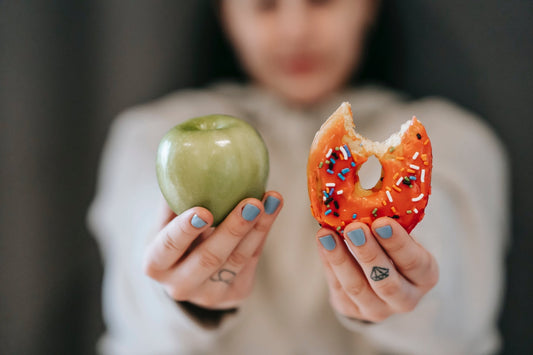I don’t think there’s anyone who didn’t do some stress eating during the pandemic.
Throughout life we will face anxiety causing events, and we understand that the greatest gift we can give ourselves and our children is the ability to deal with them by developing resilience. To do this, we need to acknowledge that there will always be challenges to face. Only after we succeed in doing so, we will reach the desired peace of mind and effective functioning in situations over which we have no control.
Stress can affect our appetite by releasing hormones that encourage eating. Levels of the hormone Cortisone rise in the mornings, in order to provide us with the energy needed to start a new day. In prolonged stressful situations, this hormone remains at unnaturally high levels, much like a car constantly revving the engine. In order the keep the engine going, the car needs fuel. The human body needs hours of mental and physical relation to recover and rest, and if it doesn’t get it then the appetite increases accordingly.
Another way stress can affect our appetite is by the body secreting the adrenaline hormone, which reduces appetite. Adrenaline is released in times of perceived danger and the body diverts all resources to prepare for flight or fight. The blood flows to the limbs, muscles, heart & brain and doesn’t allow for activities like eating – thus reducing the appetite.
Emotional Eating
And then there is Emotional Eating. Emotional hunger isn’t your body fueling or diverting resources. This is eating in response to emotions (usually negative) like boredom, stress, sadness, loneliness, etc. You might not even be hungry, but you want to give yourself something. First you have to identify WHY I want to it and then WHAT I’m going to eat or WHAT ELSE I can do instead. If you’re bored, try to do something constructive; if you’re tired, go sleep; if you’re stressed, exercise will deal with that much better than food. Don’t get in the habit of using food to comfort or reward yourself.
Stop blaming yourself and try to distract yourself by taking the time to breathe, sing, or laugh. It is said that a 20-second hug can release positive hormones in the body. Sugar and Carbs are the go-to comfort foods. Try to replace them with colorful, healthy foods (vegetables & fruits) that won’t mess with your blood sugar levels.




